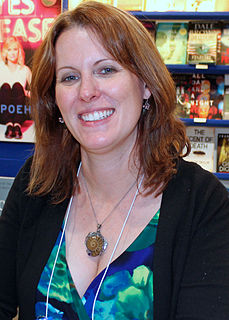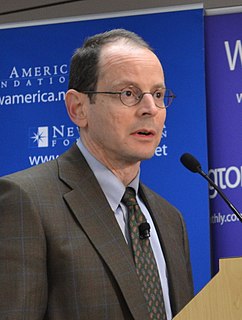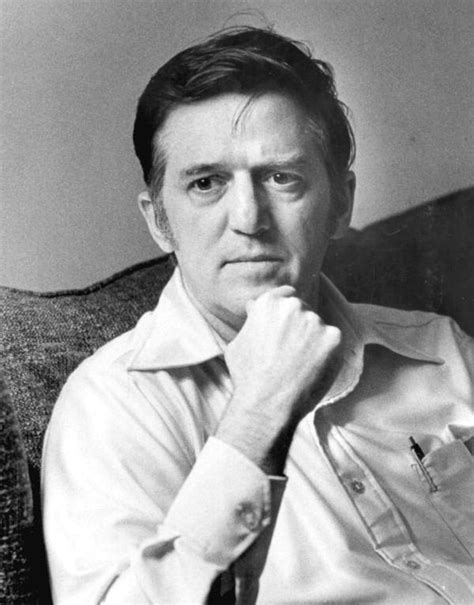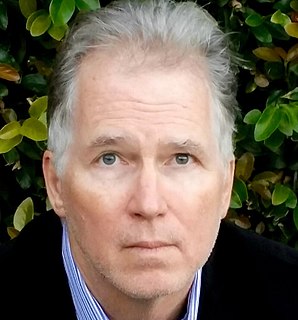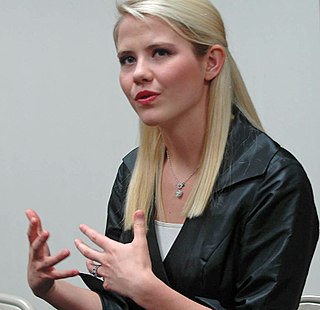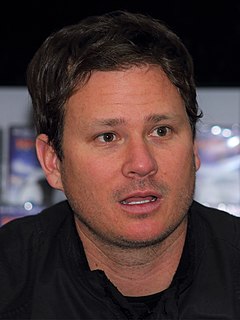Top 419 Roughly Quotes & Sayings - Page 7
Explore popular Roughly quotes.
Last updated on November 22, 2024.
When you look at me that way, I feel so beautiful." "You are beautiful." He signed deep in his chest. His hands slid up and down her arms, caressing her roughly. "So damned beautiful." "So are you." She put a hand to his bare chest, tracing the defined ridges of his musculature. "Like a diamond. Hard and gleaming, and cut with all these exquisite facets. Inside...pure, brilliant fire.
When implemented, the Complete Lives system produces a priority curve on which individuals aged between roughly 15 and 40 years get the most substantial chance, whereas the youngest and oldest people get chances that are attenuated... The Complete Lives system justifies preference to younger people because of priority to the worst-off rather than instrumental value.
CHOW^TM contained spun, plaited, and woven protein molecules, capped and coded, carefully designed to be ignored by even the most ravenous digestive tract enzymes; no-cal sweeteners; mineral oils replacing vegetable oils; fibrous materials, colorings, and flavorings. The end result was a foodstuff almost indistinguishable from any other except for two things. Firstly, the price, which was slightly higher, and secondly, the nutritional content, which was roughly equivalent to that of a Sony Walkman.
In the 10 cities with the nation's highest obesity rates, the direct costs connected with obesity and obesity-related diseases are roughly $50 million per 100,000 residents. And if these 10 cities just cut their obesity rates down to the national average, all added up they combine to save nearly $500 million in healthcare costs each year.
In 88 poor countries for which we have data, in each and every one of the 88, the PPP for food shows that poor people can buy less food than you would expect from the PPP that the World Bank is using. The reason for this is obvious on reflection. It has to do with the fact that most foodstuffs are tradable commodities: basic foodstuffs, such as rice, flour and beans, can easily be conveyed across national borders and their prices will therefore roughly mirror the exchange rates among currencies.
It's funny what [producer Richard Zanuck said about even though you can't quite place when the book or the story came into your life, and I do vaguely remember roughly five years old reading versions of Alice in Wonderland, but the thing is the characters. You always know the characters. Everyone knows the characters and they're very well-defined characters, which I always thought was fascinating. Most people who haven't read the book definitely know the characters and reference them.
In 2010, you have roughly 38 billion dollars spent by government on cyber and telecoms security and another 60 billion or so by private corporations. So approximately 100 billion dollars spent on security, mostly on technological solutions, which the corporates are offering governments in particular; it's a very high growth area. So everyone is climbing over each other to get the contracts for government procurement on this. There is undoubtedly an element of this and that's what encourages, in part, the whole idea of locking down the Internet.
What I mean by it, and roughly what most biologists who talk about culture mean by it, is either behavior itself, or information that leads to behavior. Information that is picked up through social learning - so, from being with, watching, being taught by others. It's a way that individuals behave or get information about how they will behave that comes directly from the behavior of others.
The children know all about everything so well that it never occurs to them to play at the situations in any one of these tales, or even to read it twice over. But let them have tales of the imagination, scenes laid in other lands and other times, heroic adventures, hairbreadth escapes, delicious fairy tales in which they are never roughly pulled up by the impossible —even where all is impossible, and they know it, and yet believe.
The essential fact which emerges ... is that the three smallest and most active reservoirs ( of carbon in the global carbon cycle), the atmosphere, the plants and the soil, are all of roughly the same size. This means that large human disturbance of any one of these reservoirs will have large effects on all three. We cannot hope either to understand or to manage the carbon in the atmosphere unless we understand and manage the trees and the soil too.
In Colma, a suburb of San Francisco, California there's a proposal pending to tax . . . the dead. If proponents get their way, grave sites will be taxed $5 dollars - per grave, per year - for eternity. In Colma the dead outnumber the living by a ratio of roughly 1000-to-1, including such notables as: Wyatt Earp, Levi Strauss, and William Randolph Hearst. And they, apparently, haven't paid their fair share. For liberals, when it comes to taxes . . . nothing is sacred.
Toska - noun /?t?-sk?/ - Russian word roughly translated as sadness, melancholia, lugubriousness. "No single word in English renders all the shades of toska. At its deepest and most painful, it is a sensation of great spiritual anguish, often without any specific cause. At less morbid levels it is a dull ache of the soul, a longing with nothing to long for, a sick pining, a vague restlessness, mental throes, yearning. In particular cases it may be the desire for somebody of something specific, nostalgia, love-sickness. At the lowest level it grades into ennui, boredom.
Forests and trees make significant direct contributions to the nutrition of poor households ... [as] rural communities in Central Africa obtained a critical portion of protein and fat in their diets through hunting wildlife from in and around forests. The five to six million tonnes of bushmeat eaten yearly in the Congo Basin is roughly equal to the total amount of beef produced annually in Brazil - without the accompanying need to clear huge swathes of forest for cattle.
There are roughly three New Yorks. There is, first, the New York of the man or woman who was born here, who takes the city for granted and accepts its size and its turbulence as natural and inevitable. Second, there is the New York of the commuter — the city that is devoured by locusts each day and spat out each night. Third, there is the New York of the person who was born somewhere else and came to New York in quest of something.
Economists often talk about the 80/20 Principle, which is the idea that in any situation roughly 80 percent of the “work” will be done by 20 percent of the participants. In most societies, 20 percent of criminals commit 80 percent of crimes. Twenty percent of motorists cause 80 percent of all accidents. Twenty percent of beer drinkers drink 80 percent of all beer. When it comes to epidemics, though, this disproportionality becomes even more extreme: a tiny percentage of people do the majority of the work.
With all of the talk about polling and demographics, I think too many people have lost touch with the human and moral crisis of deportations. Every day, roughly 1,000 people are deported because the Republican leadership of the House of Representatives is denying the majority of the US Congress a chance to vote on citizenship. I will be arrested today because the labor movement stands with the families tragically ripped apart by John Boehner and the House Republicans’ embrace of a broken immigration system.
I have concluded that most PhD economists under appraise the power of the common-stock-based "wealth effect," under current extreme conditions... "Wealth effects" involve mathematical puzzles that are not nearly so well worked out as physics theories and never can be... What has happened in Japan over roughly the last ten years has shaken up academic economics, as it obviously should, creating strong worries about recession from "wealth effects" in reverse.
I made it," you said, gruffly, "for you." You shoved it onto my finger. It was roughly carved, shaped from a lump of something colourful and cold...a ring made entirely from a gemstone. It was beautiful. It glinted emerald greens and blood reds over my skin, and had tiny flecks of gold catching the light. I couldn't stop staring at it. "Why?" I asked. You didn't answer that. Instead you touched the ring gently and looked piercingly at me, unsaid questions in your eyes.
An artist of understanding and experience can show more of his great power and art in small things roughly and rudely done, than many another in a great work. A man may often draw something with his pen on a half sheet of paper in one day . . . . and it shall be fuller of art and better than another's great work whereon he hath spent a whole year's careful labor.
The amusement fled from Royce's face and with a groan he pulled her roughly against his chest, crushing her to him. "Jenny," he whispered hoarsely, burying his face in her fragrant hair. "Jenny, I love you." She melted against him, molding her body to the rigid contours of his, offering her lips up for his fierce, devouring kiss, then she took his face between both her hands. Leaning back slightly against his arm, her melting blue eyes gazing deeply into his, his wife replied in a shaky voice, "I think, my lord, I love you more.
The indispensability argument says (roughly) that if you have ample reason to accept an empirical scientific theory that makes indispensable use of mathematics, and that theory entails that numbers exist, then you have ample reason to accept that numbers exist. The argument affirms the antecedent of this conditional, and concludes that you have ample reason to believe that numbers exist. What is striking about this argument is that it seems to show that the empirical reasons that suffice for accepting a scientific theory also suffice for accepting a metaphysical claim.
In the United States, the average is two children per family, while in Africa it is five children per family. On the surface, the statistic seems to indicate that Africans are having way too many kids and are taxing the Earth's resources, while American kids are born into families who are able to take care of them. However, the average American child consumes roughly the same resources as fifteen African children. So when an American family says they only have two children, they are actually consuming the resources of an African family of thirty children!
My one-time roommate Claire had inherited the house from her uncle, and when she went off to bigger and better things, she’d left it in my care. And it needed a lot of it. Most importantly, it needed a new roof. There was a worrying stain on the ceiling of my bedroom that had started out roughly the shape of Rhode Island, but now looked more like North Carolina. Another few more days of rain and it was going to be Texas. And then it wouldn’t be anything at all because the battered old shingles were going to cave in on my head.
Leave an extrovert alone for two minutes and he will reach for his cell phone. In contrast, after an hour or two of being socially on, we introverts need to turn off and recharge. My own formula is roughly two hours alone for every hour of socializing. This isn't antisocial. It isn't a sign of depression. It does not call for medication. For introverts, to be alone with our thoughts is as restorative as sleeping, as nourishing as eating. Our motto: I'm okay, you're okay-in small doses.
For half of the world's population, roughly three billion people around the world living on less than two dollars a day, an election is at best a means, not an end; a starting point, not deliverance. These people are looking less for an "electocracy" than for the basic elements that for most of us define a decent life--food, shelter, electricity, basic health care, education for their children, and the ability to make their way through life without having to endure corruption, violence, or arbitrary power.
You can think of the Health Impact Fund as a mechanism that would keep the benefits and burdens of pharmaceutical innovation for the affluent roughly as they are while massively reducing the burdens presently imposed upon the poor. This sounds like magic. But it really works because the current system is not Pareto efficient. It's a system that generates hundreds of billions of dollars in litigation costs and deadweight losses that HIF-registered medicines would sidestep. By avoiding these losses, the HIF reform can bring improvements all around - including for pharmaceutical innovators.
She would try to relieve the pain of love by first roughly rubbing her dry lips against mine; then my darling would draw away with a nervous toss of her hair, and then again come darkly near and let me feed on her open mouth, while with a generosity that was ready to offer her everything, my heart, my throat, my entrails, I gave her to hold in her awkward first the scepter of my passion.
When a child is born, a father is born. A mother is born, too of course, but at least for her it's a gradual process. Body and soul, she has nine months to get used to what's happening. She becomes what's happening. But for even the best-prepared father, it happens all at once. On the other side of a plate-glass window, a nurse is holding up something roughly the size of a loaf of bread for him to see for the first time.
One way of working is just bring a group of totally different musicians together and encourage them to stick to their guns, not to do the thing that normally happens in a working situation where everyone homogenizes and concedes certain points - so eventually they're all playing in roughly the same style. I wanted quite the opposite of that. I wanted them to accent their styles, so that they pulled away. So there would be a kind of space in the middle where I could operate, and attempt to make these things coalesce in some way. In fact quite a lot of my stuff has arisen from that.
In the yogic tradition, this principle of using intense effort to burn through life's distractions is called Tapas. It's another Sanskrit word, roughly defined as "heat" or "essential energy." The concept is that through a disciplined approach to work and self-sacrifice, Tapas will burn away the negativity that separates us from God. By working our hardest and happily enduring the hardships of life we are able to create a sense of peace and clarity in ourselves.
After 25 quarters of so-called recovery under Obama, it has increased a total of only 14.3 percent. Compare this to earlier periods. After the JFK tax cuts of the early 1960s, the economy grew in total by roughly 40 percent. After the Reagan tax cuts of the 1980s, the economy grew by a total of 34 percent.
Industrial Society is not merely one containing 'industry,' large-scale productive units capable of supplying man's material needs in a way which can eliminate poverty: it is also a society in which knowledge plays a part wholly different from that which it played in earlier social forms, and which indeed possesses a quite different type of knowledge. Modern science is inconceivable outside an industrial society: but modern industrial society is equally inconceivable without modern science. Roughly, science is the mode of cognition of industrial society, and industry is the ecology of science.
What I have learned about corporate capitalism, roughly, is that it is an act of theft, by and large, through which a very few live very high off the work, invention, and creativity of very many others. It is the Grand Larceny of our particular time in history, the Grand Larceny in which a future of freedom which could have followed the collapse of feudalism was stolen from under our noses by a new bunch of bosses doing the same old things
It is true that building a green economy will not be good for everyone's jobs. Notably, people working in the fossil fuel industry will face major job losses. The communities in which these jobs are concentrated will also face significant losses. But the solution here is straightforward: Just Transition policies for the workers, families and communities who will be hurt as the coal, oil and natural gas industries necessarily contract to zero over roughly the next 30 years.
The 1,230 gigawatts (GW) of renewable power generating capacity in place at the end of 2009 now constitutes just over 25 percent of total generating capacity worldwide. This is over three times nuclear generating capacity and roughly 38 percent of the capacity of fossil fuel-burning power plants worldwide.
Our many Jewish friends and acquaintances are being taken away in droves. The Gestapo is treating them very roughly and transporting them in cattle cars to Westerbork, the big camp in Drenthe to which they're sending all the Jews....If it's that bad in Holland, what must it be like in those faraway and uncivilized places where the Germans are sending them? We assume that most of them are being murdered. The English radio says they're being gassed.
So here I am, sending a two-ounce mouse down into a dungeon with a sewing needle to save a human princess, and I don't know how in the world he's going to do it. I have no idea. That was the first time it occurred to me that writing the story was roughly equivalent to Despereaux's descent into the dungeon. I was tremendously aware of that as I was writing. I thought, "I have to be brave or else I'm not going to be able to tell it." But it's the only way that I can write. If I know what's going to happen, I'm not interested in telling the story.
To become a chess grandmaster also seems to take about ten years. (Only the legendary Bobby Fisher got to that elite level in less than that amount of time: it took him nine years.) And what's ten years? Well, it's roughly how long it takes to put in ten thousand hours of hard practice. Ten thousand hours is the magic number of greatness.
While greenies and their media flunkies continue to savage the gasoline-powered internal-combustion engine and rhapsodize about hybrids, hydrogen, electrics, natural gas, propane, nuclear, and God-knows-what-other panaceas, perhaps including bovine urine, there are no realistic, economically viable alternatives. None. Zero. Like it or not, as long as we remain dependent on the private automobile for transportation (roughly 80 percent of all movement in the nation is by car), we are harnessed to the IC gas engine.
There was a wall. It did not look important. It was built of uncut rocks roughly mortared. An adult could look right over it, and even a child could climb it. Where it crossed the roadway, instead of having a gate it degenerated into mere geometry, a line, an idea of boundary. But the idea was real. It was important. For seven generations there had been nothing in the world more important than that wall. Like all walls it was ambiguous, two-faced. What was inside it and what was outside it depended upon which side of it you were on.
In all the interviews I have done, I cannot remember one offender who did not admit privately to more victims than those for whom he had been caught. On the contrarty, most offenders had been charged with and/or convicted of from one to three victims. In the interviews I have done, they have admitted to roughly 10 to 1,250 victims. What was truly frightening was that all the offenders had been reported before by children, and the reports had been ignored.
Home. One place is just like another, really. Maybe not. But truth is it's all just rock and dirt and people are roughly the same. I was born up there but I'm no stranger here. Have always felt at home everywhere, even in Virginia, where they hate me. Everywhere you go there's nothing but the same rock and dirt and houses and people and deer and birds. They give it all names, but I'm at home everywhere. Odd thing: unpatriotic. I was at home in England. I would be at home in the desert. In Afghanistan or far Typee. All mine, it all belongs to me. My world.
Donald Trump claims - he did interview after the debate where he said, well, gosh, you can't find Americans to do these jobs to be waiters or waitresses or bellhops.What ridiculous nonsense. "The New York Times" reported roughly 300 Americans applied for those jobs. He only hired 17. Instead, he brought in foreign workers, because they're captive workers, because you can pay them less because they can't leave.
Parasites are not only incredibly diverse; they are also incredibly successful. There are parasitic stretches of DNA in your own genes, some of which are called retrotransposons. Many of the parasitic stretches were originally viruses that entered our DNA. Most of them don't do us any harm. They just copy and insert themselves in other parts of our DNA, basically replicating themselves. Sometimes they hop into other species and replicate themselves in a new host. According to one estimate, roughly one-third to one-half of all human DNA is basically parasitic.
Faculty Psychology is getting to be respectable again after centuries of hanging around with phrenologists and other dubious types. By faculty psychology I mean, roughly, the view that many fundamentally different kinds of psychological mechanisms must be postulated in order to explain the facts of mental life. Faculty psychology takes seriously the apparent heterogeneity of the mental and is impressed by such prima facie differences as between, say, sensation and perception, volition and cognition, learning and remembering, or language and thought.
If you look across a host of measures at adoption studies, fraternal v. identical twin studies, twins-raised-apart studies, the history of early childhood intervention research, naturally-occurring experiments, differences between societies, changes over history, and so forth, you tend to come up with nature and nurture as being about equally important: maybe fifty-fifty. The glass is roughly half-full and half-empty.
I review all I know, but can synthesize no meaning. When I doze, the Fact, the certain accomplished calamity, wakes me roughly like a brutal nurse. I see it crouching inflexibly in a corner of the ceiling. It comes down in geometrical diagonal like lightning.It says, I remain, I AM, I shall never cease to be: your memory will grow a deathly glaze: you will forget, you will fade out, but I cannot be undone.Thus every quarter hour it puts the taste of death in my mouth, and shows me, but not gently, how I go whoring after oblivion.
The standard of 'affordable' housing is that which costs roughly 30 percent or less of a family's income. Because of rising housing costs and stagnant wages, slightly more than half of all poor renting families in the country spend more than 50 percent of their income on housing costs, and at least one in four spends more than 70 percent.
Value investing doesn't always work. The market doesn't always agree with you. Over time, value is roughly the way the market prices stocks, but over the short term, which sometimes can be as long as two or three years, there are periods when it doesn't work. And that is a very good thing. The fact that our value approach doesn't work over periods of time is precisely the reason why it continues to work over the long term.
It is unfortunately none too well understood that, just as the State has no money of its own, so it has no power of its own. All the power it has is what society gives it, plus what it confiscates from time to time on one pretext or another, there is no other source from which State power can be drawn. Therefore every assumption of State power, whether by gift or seizure leaves society with so much less power; there is never, nor can be, any strengthening of State power without a corresponding and roughly equivalent depletion of social power.
As far as many statistical series that are related to activities of mankind are concerned, the date that divides human history into two equal parts is well within living memory. The world of today is as different from the world I was born in as that world was from Julius Caesar s. I was born in the middle of human history, to date, roughly. Almost as much has happened since I was born as happened before.
Blay didn’t shake the hand that was offered. He reached over, took a hold of the fighter’s face, and drew Qhuinn in for a kiss. It was supposed to be only a split-seconder— like their lips were the ones doing the handshake thing. When he went to pull back, though, Qhuinn captured him, and held him in place. Their mouths met again… and again… and once more, their heads tilting to the sides, the contact lingering. “You’re welcome,” Blay said roughly. Then he smiled a little. “Can’t say it was all a pleasure, though.
The doctrine of evolution implies the passage from the most organised to the least organised, or, in other terms, from the most general to the most special. Roughly, we say that there is a gradual 'adding on' of the more and more special, a continual adding on of new organisations. But this 'adding on' is at the same time a 'keeping down'. The higher nervous arrangements evolved out of the lower keep down those lower, just as a government evolved out of a nation controls as well as directs that nation.
Peter Beinart excoriates the doughface liberals who during the Cold War put anti-imperialism before anti-totalitarianism and demanded total moral purity on the part of the United States, thus opposing any action in the real world to resist Soviet expansionism. If the Democrats were, as he advocates, to return to the Trumanesque anti-totalitarian liberalism that held sway in the party from roughly 1947 to 1972, the party and the country would be better off.
Vonnegut's war was necessary. And yet it was massacre and screaming and confusion and blood and death. It was the mammoth projection outward of the confused inner life of men. In war, the sad tidy constructs we make to help us believe life is orderly and controllable are roughly thrown aside like the delusions they are. In war, love is outed as an insane, insupportable emotion, a kind of luxury emotion, because everywhere you look, someone beloved to someone is being slaughtered, by someone whose own beloved has been slaughtered, or will be, or could be.
You know, if a band on a label sold a few hundred thousand copies of their record these days, they wouldn't make any money. But if a band can pump out 10 million copies of a record for free, and 50,000 of those fans come to the band's website to watch pay-per-view videos or buy a t-shirt, that's roughly $10 million in revenue per year.
Roughly speaking, any man with energy and enthusiasm ought to be able to bring at least a dozen others round to his opinion in the course of a year no matter how absurd that opinion might be. We see every day in politics, in business, in social life, large masses of people brought to embrace the most revolutionary ideas, sometimes within a few days. It is all a question of getting hold of them in the right way and working on their weak points.
We certainly have to have a view about knowledge in order to decide whether some version of foreknowledge is necessary for inquiry or whether some philosopher or other thinks it is. Roughly, the more demanding our conception of knowledge is, the less plausible foreknowledge is; the weaker our conception of knowledge is, the more plausible foreknowledge is.
I used to think--and given the way we ended up, maybe I still do--that all relationships need the kind of violent shove that a crush brings, just to get you started and to push you over the humps. And then, when the energy from that shove has gone and you come to something approaching a halt, you have to look around and see what you've got. It could be something completely different, it could be something roughly the same, but gentler and calmer, or it could be nothing at all.
